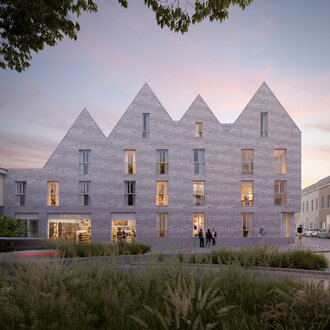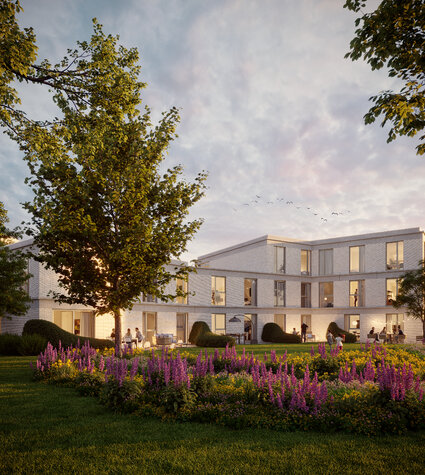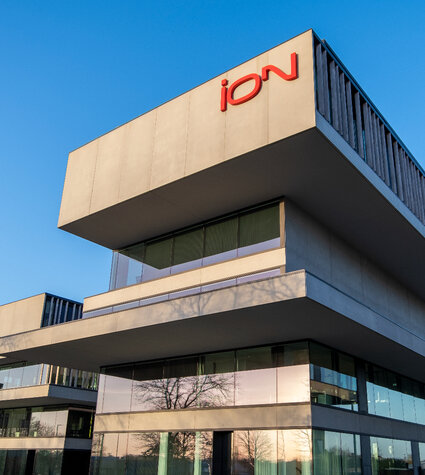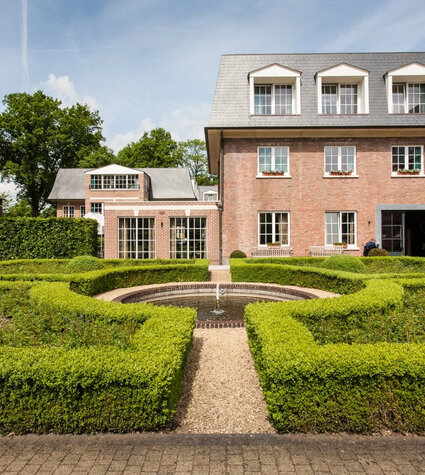So, a job in the art sector was a logical choice for you?
"I've always wanted to do something with art, but when your father's name is Jan Hoet, it's not that easy. I started my career as a private banker and when auction house Christie's approached me in 2008, I strongly hesitated to make the switch. Now I like it that those two worlds come together. In this job, I can perfectly combine my passion for art with my experience in banking. "
It's probably a fascinating world.
"Definitely. I meet people all the time who share the same passion. You also learn a lot from collectors and museum directors. At an auction house, you're much more focused on the commercial side of art, while collectors really travel and discover which artists are hot or trending at the moment. Sometimes we lag behind a little and that scares me. I may have a nice background, but the world just keeps on turning. It's interesting to get input from people who are passionate about art."
How is the art market evolving in Belgium?
"All over the world we are seeing many people with new money entering the market, eager to put together a nice collection in a short period of time. This is also the case in Belgium. The biggest difference with the past is that collectors are less likely to invest in Belgian art. They prefer to wait until it plays a role internationally." Auctioneering is not for me. I'd much rather work behind the scenes.
And yet more and more people are investing their wealth in art?
"Yes, but that makes sense somehow. It's an interesting market and world to immerse yourself in. You don't have to worry about crises or loans. A work of art is also tangible. You can have a connection with it. As a collector, you can go on a lot of nice trips, because you can travel the world looking for art, from Miami all the way to Basel."
How much truth is there in the statement "Buying is easy. Selling is hard"?
"It's a phrase many people use a little too easily. Of course you have to be careful not to pay too much for a work of art, because you never know in advance what the new selling price will be. But that's exactly where I, as an advisor, come in."
What is the best investment in?
"Young artists are a challenge. If you want to play it safe, it's best to invest in artists who are already well-established on the market. They have proven themselves, but still, the prices for their works can fluctuate. Sometimes I have a hype feeling about certain artists. That's where your gut feeling comes in.”
Because every collector has his own style?
"It’s not always easy to strike a balance between 'what a collector likes' and 'what is a good investment'. I have to put myself in the client's shoes. That flexibility is important to be able to feel whether or not this is a good work of art by the artist in question, even though I have no affinity with his work."
Is investing in art just something for connoisseurs?
"Whether someone invests out of interest or invests to make money out of it... There's not much difference. I believe that every investor buys art out of some kind of passion. I don't believe you would invest a million dollars in a work of art if you don't like it."
Do you collect art yourself?
“I don't see myself as a collector, but I am constantly tempted to buy art. I always rely on my gut feeling rather than on reason. If you come into contact with art every day, you are less tempted to own it yourself. For me it's especially important to keep discovering art.”
Is it hard to still be astonished by some works of art?
"Not at all. There's always something innovative and refreshing in a work of art. You have to maintain that appetite for art. Don't stick to what you know, don’t be afraid to experiment. Broaden your horizons and give young artists a chance."













